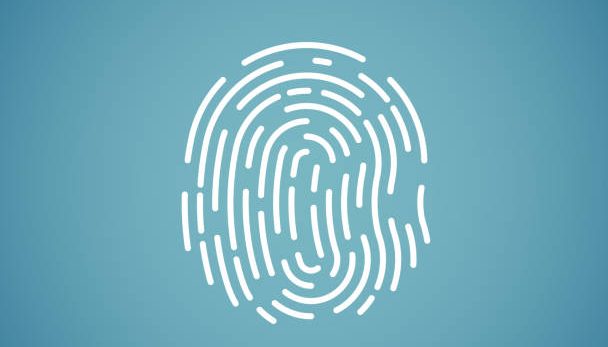Civil society organisations in Kenya have noted with concern the government’s policy to begin exclusively issuing new ID applicants and people seeking to replace lost IDs with the new digital ID, Maisha Card, despite the project’s serious design irregularities and exclusion concerns.
On 23rd February 2024, the Principal Secretary for the State Department for Immigration and Citizen Services, Ambassador Julius Bitok, announced the government’s plans to accelerate the issuance of the new generation of National Identity Cards, known as Maisha Cards.
PS Bitok’s announcement followed lifting a court order that had suspended the implementation of the digital identity project, Maisha Namba.
Katiba Institute had filed a case with the High Court challenging the legality of the Maisha Namba project.
Still, the matter has now been transferred to the constitutional and human rights division of the High Court for hearing and determination. Because of this transfer to another court division, the interim order halting the rollout of Maisha Namba was lifted.
Another civil society organisation, Haki na Sheria Initiative, has also filed a petition with the High Court challenging the constitutionality of Maisha Namba.
Civil society organisations acknowledge and commend the High Court’s swift decisions, first to issue interim orders suspending Maisha Namba and second to transfer the Judicial Review case on Maisha Namba to another court division.
However, we urge the government not to interpret this transfer of the case as consent to begin implementing the adoption of Maisha Namba before fully determining the cases and implementing reforms and safeguards to address the system’s weaknesses.
While announcing the pilot phase of the Maisha Namba project on November 1, 2023, PS Bitok noted that the trials aimed to identify gaps with the digital ID system before the official launch across the country and had informed the public that transitioning to the new generation national IDs, Maisha card, would take 2-3 years.
Further, through several media briefs and consultations with stakeholders, the government has also maintained that digital identity would not be mandatory.
However, the government has now spurned the printing of the 2nd generation national identity cards to exclusively issue Maisha Cards, effectively forcing all Kenyans seeking IDs to sign up for Maisha Namba.
This raises the prospect of Maisha Namba grievously disrupting people’s lives and having a profound impact on equity and access to ID cards for many Kenyans, particularly for the about 5 million people who are indiscriminately locked out of or delayed in obtaining national ID cards due to discrimination and millions more who face obstacles like cost or being in rural areas far from registration centres.
It could also create a situation where the Maisha Namba digital ID becomes mandatory to access public and private services, as was the case with Huduma Namba. This would disproportionately disadvantage those who don’t have Maisha Cards.
Moreover, given that multiple cases challenging the constitutionality of the Maisha Namba project are still due for hearing and determination before the court, any court decisions declaring the project unlawful would seriously affect people’s ability to acquire nationality documents.
For instance, between December 2023 and February 2024, an estimated 600,000 Kenyans who had applied for IDs could not access their ID cards because the government began issuing only Maisha Cards to applicants, violating court orders. The few lucky people who obtained the Maisha Card also needed help. Had the government put in place complementary measures, including maintaining the issuance of the current national ID cards, this problem would have been averted.
We note that the challenges Kenyans have already witnessed, barely three months into the pilot phase of the Maisha Namba project, demonstrate how rolling back the harm and risks, not to mention the loss of public funds, would only be possible once the project is adopted.
We are also concerned that Maisha Namba does not address well-documented flaws under the previous Huduma Namba project and the current citizenship processes that actively discriminate against minority and marginalised communities in Kenya. For people who face challenges, such as ID vetting, distance or accessibility challenges, or even a lack of digital infrastructure, the risk of exclusion is heightened when accessing nationality documents.
As a result, people who currently need more documentation, such as birth certificates or ID cards, cannot access the benefits of Maisha Namba as it will be issued based on existing population databases.
Other significant questions on the Maisha Namba ecosystem, including lack of a comprehensive legal framework, lack of public participation and consented opt-in, privacy and data protection concerns, also loom large.
The Maisha Namba digital ID legal framework was created through the gazettement of regulations inserted into the Registration of Persons Act and the Births and Deaths Act. This was not subjected to public participation as the constitution mandates.
The Maisha Namba Ecosystem, as proposed, also presents privacy concerns, notably by proposing a centralised digital ID system, which, without regulatory safeguards, is vulnerable to surveillance or unauthorised access by third parties.
Considering these challenges ushered by the rollout of Maisha Namba, we would also like to urge the government to reverse making digital ID mandatory and instead focus on voluntary enrollment through civic engagements and public awareness to secure buy-in from various segments of society, put in place a comprehensive legal and data protection framework to govern Maisha Namba, develop a transition trajectory, and prioritise those who lack documentation and guarantee their inclusion by ensuring they are issued with identity documents before the project is implemented.
Signed By:
- Nubian Rights Forum
- Kenya Human Rights Commission
- Article 19 Eastern Africa
- Centre for Minority Rights Development (CEMIRIDE)
- Namati Kenya
- Defenders Coalition
- Haki na Sheria Initiative
- Access Now
- Protection International – Africa
- Haki Centre
- KICTANet
- Pastoralists Advocacy Network (ParaNet)
![]()




